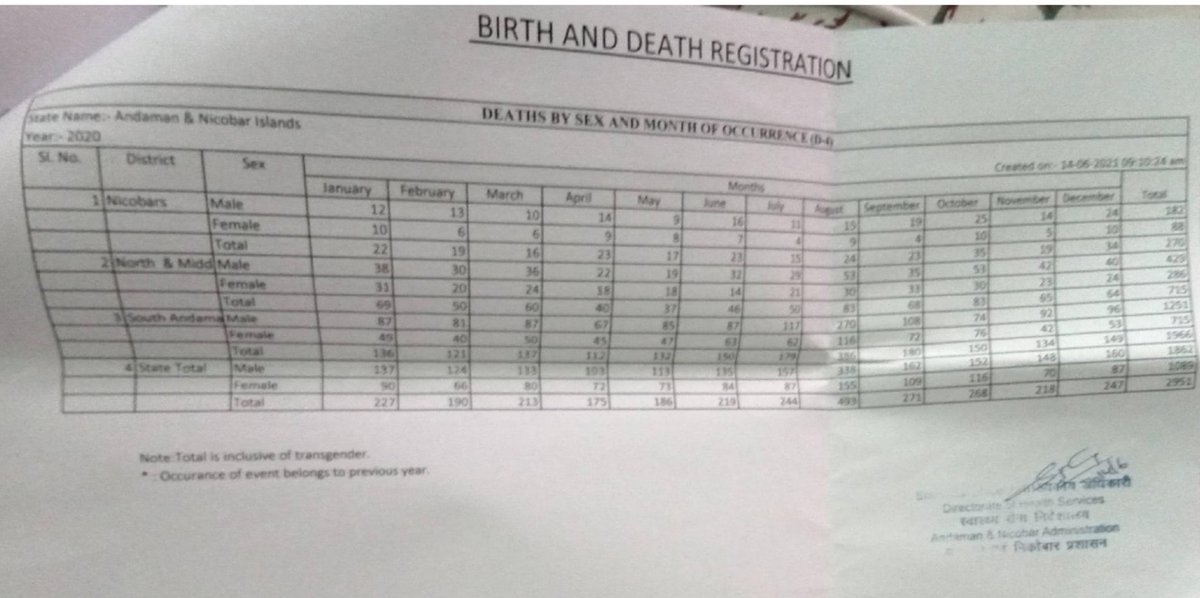I am releasing CRS Mortality data for Rajasthan, Nagaland, Lakshadweep, Arunachal, & A&N Islands. This'll aid research.
Except for Rajasthan, no significant amount of excess deaths were recorded in the other states, at least as per this data provided under RTI.
1/n
Except for Rajasthan, no significant amount of excess deaths were recorded in the other states, at least as per this data provided under RTI.
1/n
Fourth, Nagaland. Particularly difficult to get information replies from north-eastern states. 👇
5/n

5/n


Lastly, Rajasthan. The Hindu @vrsrini had previously reported on excess deaths based on partial data from Raj's online portal. The data below seems to be complete data. Though not in a month-wise manner, when compared to 2019, 2020 saw 26k excess deaths. But note-
6/n


6/n



Important to note that every year, around 10k more deaths are registered in Rajasthan, except from 2018 to 2019 when around 20k more deaths were registered. This could also be due to improvements in the CRS system for capturing births and deaths in the state.
7/n
7/n
With this, I end my work collecting mortality data for States. Some states created hurdles by transferring RTI to 100s of authorities.
I was able to report UP's mortality data. It was a great learning experience, collaborating with geniuses like @aashishg_ @muradbanaji...
8/n
I was able to report UP's mortality data. It was a great learning experience, collaborating with geniuses like @aashishg_ @muradbanaji...
8/n
1 thing I learnt talking to authorities across states is that widespread undercounting of deaths became a norm. On paper maybe not, but in practice, definitely! Will only harm our future fights against such pandemics, & people who won't benefit from COVID welfare schemes.
{End}
{End}
• • •
Missing some Tweet in this thread? You can try to
force a refresh
















